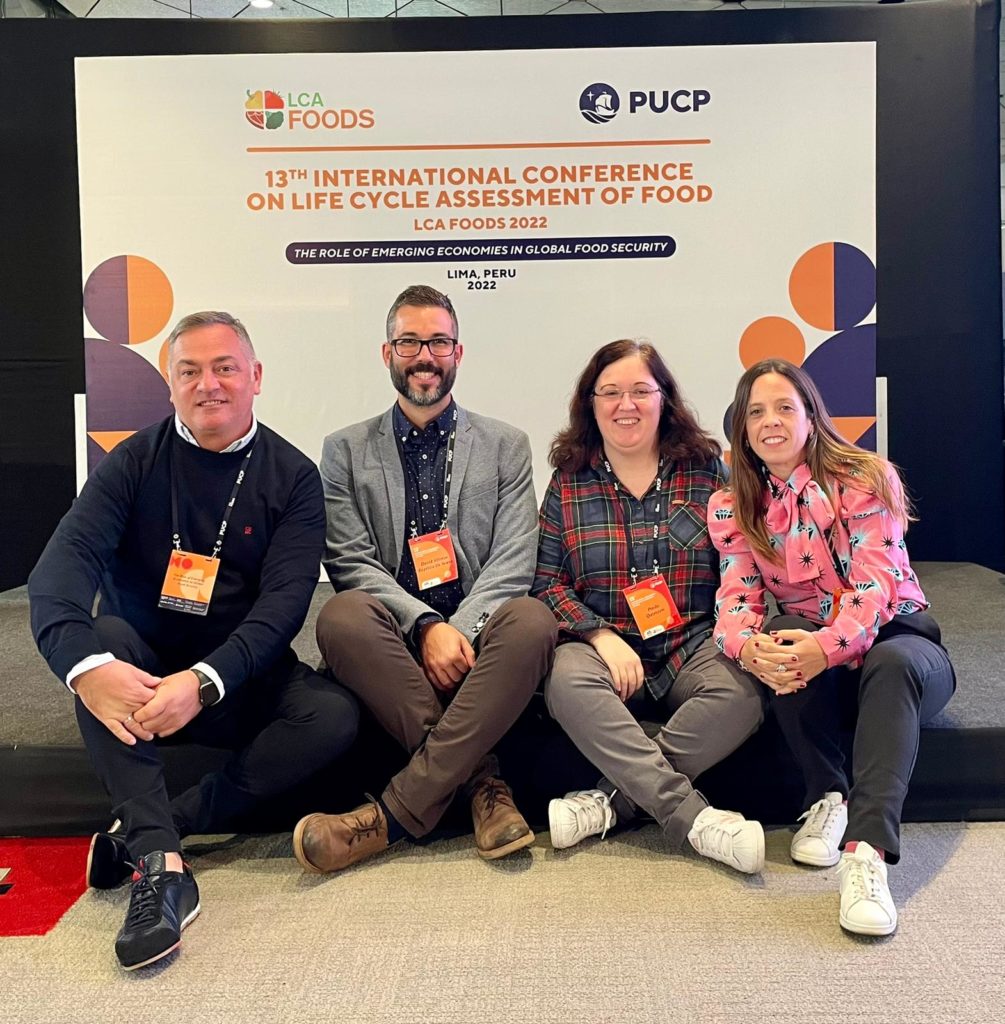12th October
The transition to a circular economy provides opportunities, especially for the food sector. LIFE CYCLE ASSESSMENT is currently one of the most used and scientifically robust environmental management methodologies to determine the environmental profile of products and services and the agri-food sector has benefited undoubtedly thanks to LCA-related research. This has justified the celebration of the 13th International Conference on Life Cycle Assessment of Foods. The theme of this conference was The Role of Emerging Economies in Global Food Security.
The aim of this biannual conference is to continue with the work done in previous LCA of Foods conference by creating a space for the LCA community to share and discuss about their advancements, fostering thus the networking between research groups and industries on a global scale, also providing a space for LCA practitioners and developers to exchange ideas on methodological developments. Finally, to introduce policy-makers and industries in the Latin America – Caribbean region to the world of LCA, is also the aim of this conference, also allowing them to meet the LCA community

Since one of the goals of NEPTUNUS is to introduce green economy strategies in the seafood sector to minimize environmental impacts, and to promote the eco-labelling under a NEXUS approach, the committee of the LCA conference decided to dedicate a special session to our project, giving our researchers the opportunity to share project main outcomes among the scientific community. It should be highlighted that NEPTUNUS includes as a scientific and methodological innovation, introducing the NEXUS variable in the decision making process related to the circular economy of seafood, in addition to the typical economic, environmental and social variables.
Professor Ruben Aldaco, from the University of Cantabria, is the leader of the project and was the chair of the session.
Session program:
- “Environmental and nutritional performance of fish and seafood: A friendly tool for producers and consumers” Sandra Ceballos, University of Cantabria
- “Management tool for monitoring the energy requirements of freezing chambers in seafood sector” Pedro Villanueva-Rey, EnergyLab
- “Life cycle assessment of oyster farming in Portugal” Paula Quinteiro, University of Aveiro
- “Environmental assessment of common octopus (Octopus vulgaris) from pots and traps fishery in Portugal” Cheila Almeida, IPMA
- “ReFish-to-Food: towards the use of resources from the seafood processing industry as a new source of proteins” María Margallo, University of Cantabria
- “Life cycle assessment of canned tuna products – A comparison of traditional and industrial process” David Baptista de Sousa, ANFACO
Out of the special session, the PhD candidate Eduardo Entrena-Barbero from the University of Santiago de Compostela (Spain) also participated in the conference where he presented the results of his research work entitled: “Pursuing the sustainability in the dairy sector: Water-Energy-Food nexus score for dairy farms”. In this, following one of the aim of the NEPTUNUS project, the adaptation of the WEF nexus index to other food sectors, apart from seafood, has been studied.

